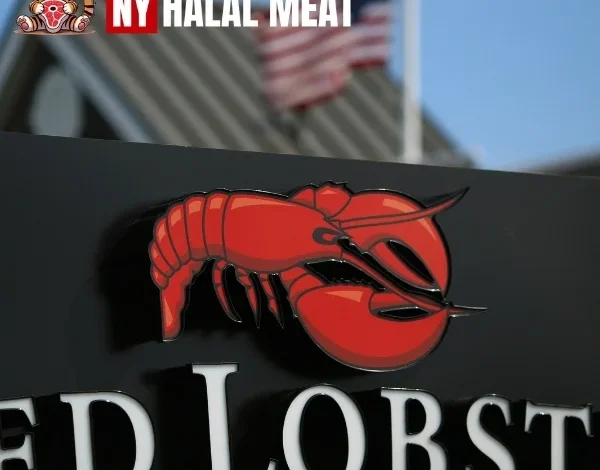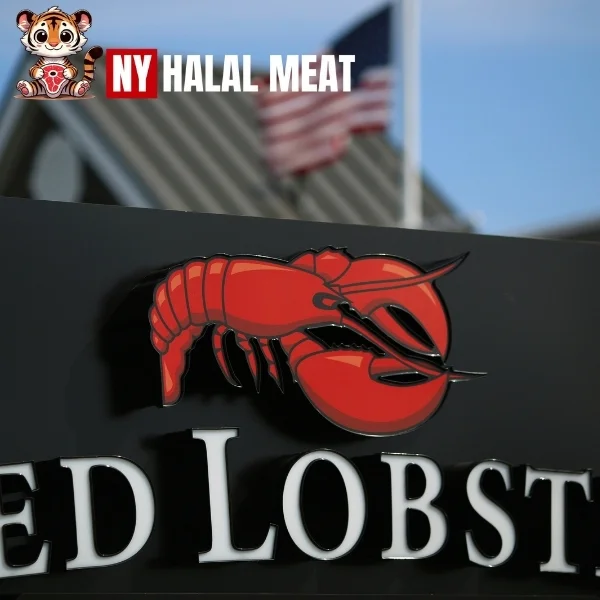
Is Red Lobster Halal in the USA?
Red Lobster is a popular American seafood restaurant chain known for its wide variety of seafood dishes, including lobster, shrimp, crab, and fish. However, for Muslims who follow a halal diet, the question arises: “Is Red Lobster halal?” The answer is not straightforward, as it depends on several factors, including how the food is prepared and whether non-halal ingredients are used. In this article, we’ll break down the factors that determine whether or not Red Lobster is suitable for Muslims and what to consider before dining there.
Understanding Halal Food
Before determining if Red Lobster offers halal options, it’s important to understand what “halal” means. In Islamic dietary laws, halal refers to food that is permissible for Muslims to consume. For food to be considered halal, it must meet specific criteria: it should not contain forbidden (haram) substances, such as pork or alcohol, and must be prepared according to Islamic principles. While seafood is generally considered halal, there are other factors that can affect whether a particular dish is permissible.
Is Seafood Halal in Islam?
In general, seafood is considered halal according to Islamic dietary laws. Most Islamic scholars agree that fish and other seafood, including lobster, shrimp, and crab, are permissible to eat. This is based on the fact that the Quran does not prohibit seafood, and many Islamic teachings suggest that all seafood is halal.
However, opinions may vary in some schools of thought, particularly regarding non-fish types of seafood such as shellfish. While these are considered halal by most scholars, some Muslim communities may not consider them permissible. Therefore, if you’re following a specific interpretation of Islamic law, it’s always good to confirm whether a particular type of seafood is halal with a local Islamic scholar.
Factors That Could Make Red Lobster Non-Halal
Although seafood is generally halal, several factors could affect whether Red Lobster’s menu is suitable for Muslims. Here are some key considerations:
1. Alcohol in Food Preparation
One of the biggest concerns when dining at Red Lobster is the use of alcohol in the cooking process. Some dishes may contain alcohol-based ingredients, such as wine or beer, used in sauces or marinades. Since alcohol is strictly prohibited in Islam, this would make those dishes non-halal. It’s important to ask the staff about whether alcohol is used in any of the dishes you are considering.
2. Cross-Contamination Risks
Cross-contamination is another factor that could make Red Lobster non-halal. Even if seafood is considered halal, the shared kitchen equipment, grills, and utensils used to prepare both halal and non-halal items could result in contamination. For instance, the same oil used to fry non-halal foods like chicken or pork might also be used to fry seafood. This could compromise the halal status of the food.
3. Non-Halal Ingredients
Some ingredients used at Red Lobster may not be halal. For example, some sauces and dressings may contain non-halal animal fats or gelatin. Gelatin, in particular, can sometimes be made from animal sources that have not been slaughtered according to halal standards. This could make the food unsuitable for Muslim diners.
4. Preparation Methods
The method of preparation plays a significant role in whether a dish is halal. While the seafood itself may be halal, how it’s prepared is crucial. For example, if seafood is fried in the same oil used for non-halal foods or cooked on the same grill as pork or other non-halal meats, cross-contamination could occur, making the food non-halal.
Tips for Dining at Red Lobster
If you still wish to dine at Red Lobster but want to ensure that the food is halal, here are some steps you can take:
1. Ask About Ingredients and Preparation
When ordering, always ask the staff about the ingredients used in the dishes. Inquire specifically whether alcohol is used in any sauces or marinades, and whether cross-contamination with non-halal foods might occur. Being proactive in asking questions can help you make an informed decision.
2. Choose Simpler Dishes
To reduce the risk of consuming non-halal ingredients, choose simpler seafood dishes. Grilled or steamed seafood is often a safer option because it is less likely to contain alcohol-based sauces or other non-halal additives. Avoid dishes that are likely to contain alcohol or complex ingredients, such as those with creamy sauces or marinades.
3. Request Separate Cooking Equipment
If you are concerned about cross-contamination, you can ask the restaurant if they can prepare your food using separate cooking equipment. Some restaurants may be able to accommodate special requests, such as using a separate grill or fryer for your seafood.
4. Stick to Halal-Friendly Sides
Choose sides that are more likely to be halal. Many Red Lobster sides, such as rice, potatoes, and steamed vegetables, are likely to be halal, but it’s always important to confirm that no non-halal ingredients like bacon fat or alcohol-based sauces have been used in their preparation.
5. Look for Halal Certification
While Red Lobster is not a halal-certified restaurant, some individual locations may have more transparency about their sourcing and preparation methods. It may be helpful to check with local halal certifying organizations to see if any Red Lobster locations in your area offer halal options.
Conclusion

Red Lobster, as a chain, does not officially offer halal-certified food, and some menu items may contain alcohol or be prepared with non-halal ingredients. However, many seafood dishes are halal by default, and if you’re cautious about alcohol, cross-contamination, and ingredients, it’s possible to find suitable options. To ensure a halal dining experience at Red Lobster, always ask the staff about ingredient lists, request alcohol-free preparations, and choose simpler dishes that don’t contain potentially problematic ingredients. If you are unsure, you may want to consider seeking out a fully halal-certified seafood restaurant instead.




